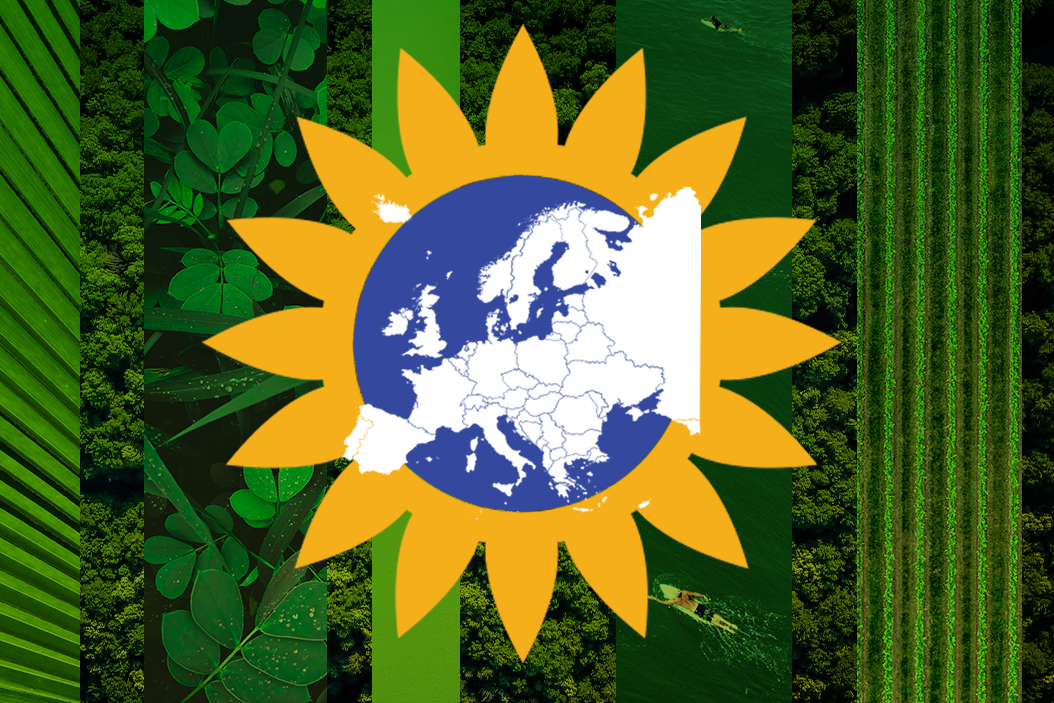April 20, 2021
Europe has been hit by a green wave in recent years. Green parties in countries as varied as Germany, Belgium, France, Ireland, Finland, and Sweden have made sizable electoral gains, with some now sitting in national governments.
The Green phenomenon seems to be gaining yet more momentum in the lead up to some crucial European elections (Germany, France) in the months ahead. What explains the green shift, and where might this trend be headed?
Collapse of the mainstream center-left. Mainstream center-left parties in places like the Netherlands and Italy, as well as the Labour Party in the UK, have imploded in recent years, hemorrhaging popular support as a result. But while these parties have collapsed, demand for left-of-center policies remains high. This is precisely what has taken place in France, where the once-dominant Socialist Party is now on the fringe of French politics — a vacuum that has been filled by France's Green Party. Polls suggest that the environment is the second-most important issue for French voters, behind unemployment, a shift reflected in the fact that France's three biggest cities — Paris, Lyon, and Marseilles — all have left-leaning mayors (Lyon and Marseilles are run by the Greens.)
But French voters are not just looking for politicians that pay lip service to leftist causes like the environment, they are seeking authentic center-left leadership. President Emmanuel Macron — whose LREM party exploited disillusionment with France's traditionally dominant center-left in 2017 and campaigned on a pledge to "make our planet great again" — has failed to resonate with left-wing voters that see him as a non-committal ideological chameleon who has watered down a once-ambitious climate agenda. The Greens have filled this void, making massive gains in municipal elections last year that forced a flailing Macron to introduce a wide-ranging climate bill. (Still, critics say the bill doesn't go far enough.)
Exerting outsized political influence. In some countries, Green parties have evolved from single-issue environmental protest groups into center-left blocs championing a range of issues. As a result, they have made inroads at the national level to significantly impact policy. In the Republic of Ireland, for instance, Fine Gael and Fianna Fáil, establishment parties, needed the support of the Green Party, which has just 4,000 registered members, to form a viable coalition government after the last election. The Greens agreed on the condition that the government commit to reduce carbon emissions by 7 percent annually. Since then, they have also helped pass a bill to put Ireland's net zero emissions goal into law. Those are big achievements for a party that holds just 12 seats in a governing coalition made up of 84 parliamentary seats in the lower house.
"Not the Greens of the Cold War" era. In some political contexts, the Greens have adopted a pragmatic approach to a political landscape that has undergone seismic shifts in recent years. Against the backdrop of a right-wing populist wave in Germany, as well as an economic model that is somewhat outdated in the age of a dominant China and worsening climate crisis, the German Green Party has tried to position itself as an authentic center-left party for the masses.
Under the joint leadership of Robert Habeck and Annalena Baerbock, who this week was tapped as the party's candidate to replace Angela Merkel as chancellor, the Greens have taken advantage of Merkel's conservative coalition's struggles to push a moderate foreign-policy agenda. The party has advocated for getting tougher on China and is also a proponent of NATO and boosting ties with Washington. Importantly, the Greens say that Germany needs to better address climate change without alienating the corporate sector and working-class people.
The Greens are now leading in the polls and have a solid chance to form the next government after Germans vote in federal elections this fall. Their success is drawing praise even from rivals. Norbert Röttgen of Merkel's CDU party, for example, recently said that "however embarrassing for me, the Greens have the clearest stance of all the parties on China and Russia."
Looking ahead. The green wave in Europe does not appear to be a fad. In many countries, people are desperate for change, and the Greens seem to be meeting the moment while other (traditional) political parties flounder.
From Your Site Articles
More For You
It’s been just over 48 hours since US forces conducted a military operation in Caracas and seized Venezuelan strongman Nicolás Maduro, and the future governance of the country – and the US role in it – remains murky.
Most Popular
Ukrainian President Volodymyr Zelenskiy listens to US President Donald Trump, after Trump said that Russian President Vladimir Putin expressed willingness to help Ukraine "succeed," during a press conference at the Mar-a-Lago club, in Palm Beach, Florida, USA, on December 28, 2025.
REUTERS/Jonathan Ernst
The Guinea-flagged oil tanker MT Bandra, which is under sanctions, is partially seen alongside another vessel at El Palito terminal, near Puerto Cabello, Venezuela, on December 29, 2025.
REUTERS/Juan Carlos Hernandez
There have been several geopolitical shocks this year, yet none have stopped oil prices from plunging, showing how oil markets have become more risk tolerant.
© 2025 GZERO Media. All Rights Reserved | A Eurasia Group media company.
